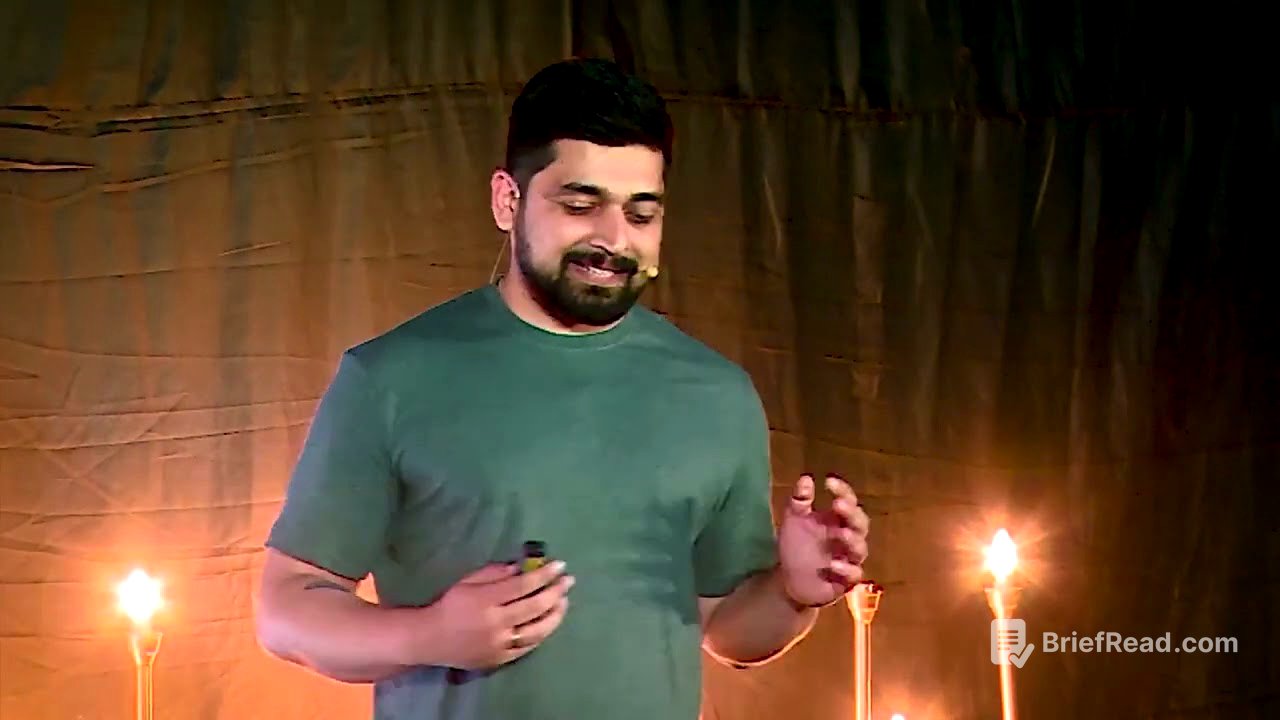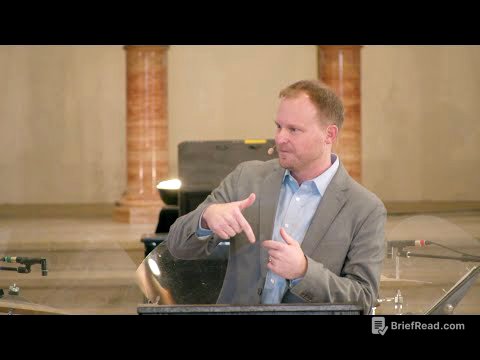TLDR;
The speaker shares his approach to time management, emphasizing that time itself cannot be managed, but people and priorities can. He outlines strategies for managing demands on one's time, mastering social media instead of avoiding it, and setting realistic daily goals. The importance of rewarding oneself and accepting occasional setbacks is also highlighted, advocating for a flexible and forgiving approach to productivity.
- Time cannot be managed, but people can.
- Master social media instead of avoiding it.
- Underestimate how much you can do in a day, focus on two key tasks.
- Reward yourself in ways that integrate with your lifestyle.
- Accept setbacks and restart.
Introduction [0:07]
The speaker introduces himself and his multifaceted life as a teacher, course creator, YouTuber, startup founder, and traveler. He addresses the common question of how he manages his time across various commitments. He argues that traditional time management advice, like waking up early or detoxing from mobile phones, doesn't fully address modern challenges. He aims to share his secrets to modern time management.
Manage People, Not Time [2:38]
The first key point is that time itself cannot be managed. Instead, the focus should be on managing people. There are those who need your time (family, loved ones) and those who want your time. Prioritize those who need your time to prevent them from demanding more of your time later. Managing people effectively involves understanding their needs and allocating time accordingly. The speaker draws inspiration from children, who instinctively know how to manage their parents' expectations to maximize their playtime.
Master Social Media [5:21]
The speaker addresses the struggle of social media and suggests mastering it instead of trying to avoid it. Since social media is unavoidable, he advises curating your feed to include inspiring and educational content. Follow people who motivate you, share valuable information, and make your social media experience enjoyable and productive. The key is to use social media wisely and intentionally.
Underestimate Your Time [6:39]
The speaker advises against overestimating how much you can accomplish in a day. He suggests limiting yourself to two main tasks: one you want to do (white circle) and one that others need you to do (black circle). This approach acknowledges the limited capacity each day has, and allows for unexpected events. By focusing on just two key tasks, you can consider your day productive, and fit unwanted tasks in the empty space.
Reward Yourself [8:09]
The speaker emphasizes the importance of rewarding yourself, but suggests planning rewards that integrate with your lifestyle. Instead of completely disconnecting, plan rewards that allow for some engagement with your phone or work. The rewards should be motivating and aligned with your goals, such as buying something after a period of hard work.
Bonus Tip: Restart [10:13]
The speaker shares a bonus tip: accept that life is unpredictable and things will go wrong. He advises against strict, long-term planning and encourages a flexible approach. It's okay to lose control and miss a workout or a coding session. The key is to restart and not let one bad day ruin the next. He compares this to restarting a computer, a proven solution for many problems.
Conclusion [11:28]
The speaker concludes by reiterating that time management is about consistently doing a few things well, rather than trying to do everything at once. He emphasizes the importance of focusing on the present day and not getting overwhelmed by long-term goals. He encourages the audience to manage people, master today, and not get caught up in reading countless time management books.









